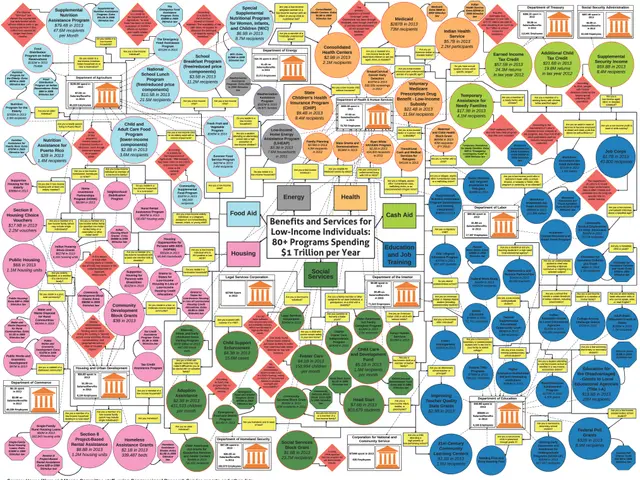Life Stages Shape Attitudes and Actions, According to Research
In a recent study conducted by Culture Amp, the attitudes and perceptions of Generation Millennials and Generation Z employees were compared across various industries and companies. The study, which was reported by the online portal Haufe, aimed to debunk the notion of a deep-seated generational conflict or a "misdirected" youth in the workplace.
The study, which involved over 1.2 million users from 4,000 companies in 2024 and 33,258 users from 187 companies in 2015, revealed some interesting findings. For instance, Generation Z employees rate their supervisors more positively than any other age group in a company. However, the older the generation, the less positive their view of leadership.
Arne Sjöström, Regional Director at Culture Amp, stated that generational stereotypes are widespread in the workplace. The results of the study indicate that generational differences in the workplace reflect different life phases and career stages rather than inherent generational traits.
One of the key findings of the study was the differing attitudes towards job stability. In 2015, Millennials in their youth felt even less committed to staying than Generation Z does today. The data comparison between 2024 and 2015 indicates that both Generation Z and young Millennials showed the lowest intention to stay. Interestingly, the data from 2024 shows that 70% of Boomers want to stay in the company, while 50% of Generation Z want to stay short-term.
The study also suggests that there are differences in work preferences and expectations between different generations. However, it does not provide specific details about these differences, nor does it indicate whether they are significant or not. Similarly, the study does not provide specific details about the differences in leadership perception between the two generations.
For more information about the study, you can contact Ralf Schick at 0711 66601 185 or via email at r.schick@ourwebsite. It's important to note that no available public information lists the names of the companies that participated in the Culture Amp studies comparing Generation Z and Millennials in 2015 and 2024.
The study conducted on employees from Stuttgart challenges the common assumptions about the work attitudes of different generations. It underscores the importance of understanding the unique needs and perspectives of each generation in the workplace to foster a more productive and harmonious work environment.
Read also:
- Peptide YY (PYY): Exploring its Role in Appetite Suppression, Intestinal Health, and Cognitive Links
- Toddler Health: Rotavirus Signs, Origins, and Potential Complications
- Digestive issues and heart discomfort: Root causes and associated health conditions
- House Infernos: Deadly Hazards Surpassing the Flames








